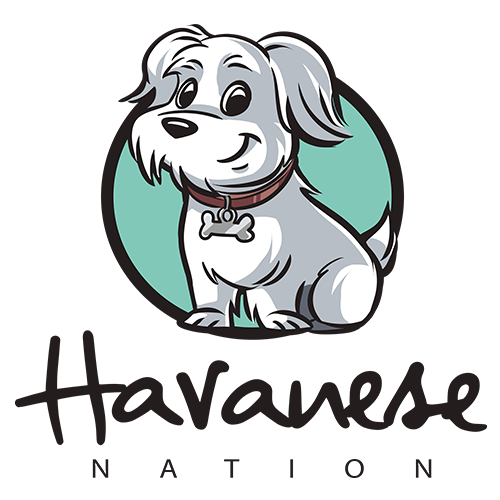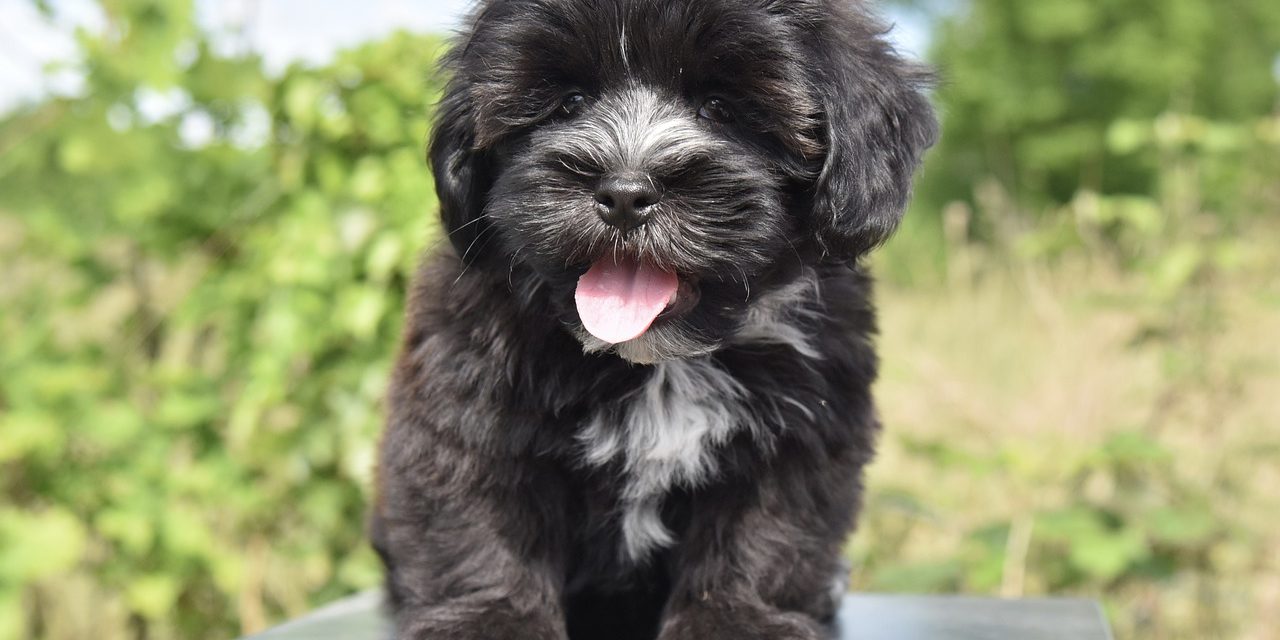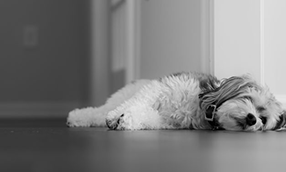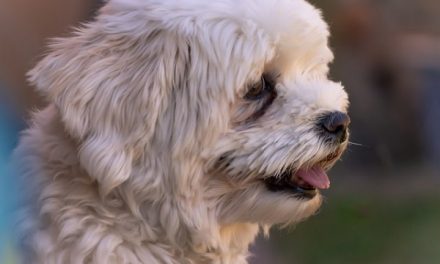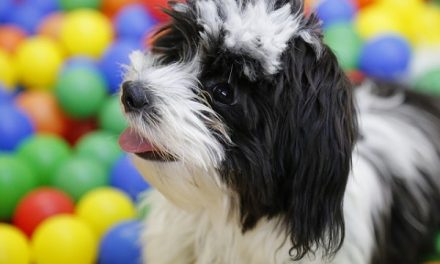The Havanese breed is a popular choice for many pet owners. They are known for being friendly, playful and intelligent. As with any dog breed, there are some important things to consider before bringing a Havanese into your home. This comprehensive guide will provide you with everything you need to know about the Havanese dog breed. From temperament and exercise requirements to grooming tips and health concerns, we have it all covered! So, whether you are considering adopting a Havanese or just want to learn more about this wonderful breed, read on!
History and origins of the Havanese dog breed
The Havanese is a small dog breed that originated in Cuba. The breed is named after the capital city of Havana, where they were first bred. They are believed to be descendants of the Bichon family, a small dog breed from the Canary Islands.
The native breed was brought to Cuba by Spanish settlers in the 1500s. They quickly became popular among Cuban nobility and were often given as gifts to visiting dignitaries. The Havanese continued to grow in popularity and eventually became the national dog of Cuba.
During the Cuban Revolution in 1959, many Havanese were forced to flee the country with their owners. Some of these dogs ended up in the United States, where they helped to popularize the breed. Today, the Havanese is a popular companion dog in both the United States and Cuba.
Appearance and personality traits of Havanese breed
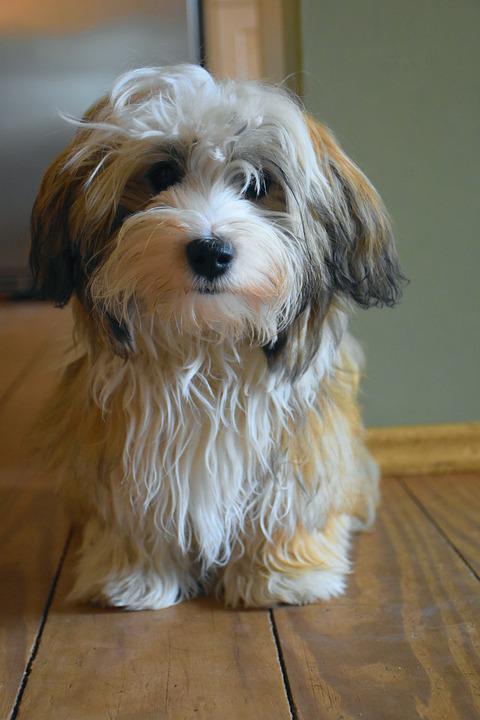
The Havanese is a small, sturdy dog with a short nose and long, silky hair. The breed’s most distinguishing feature is its coat, which is soft, fluffy, and comes in a variety of colors. The Havanese is an intelligent breed that is known for being playful and affectionate. They are also very good at obedience training and make excellent companion dogs.
The Havanese has a reputation for being a hypoallergenic breed, which means that they are less likely to cause allergic reactions in people who are allergic to dogs. This makes them a popular choice for families with allergies.
Havanese are generally healthy dogs, but like all breeds, they can be prone to certain health conditions. These include hip dysplasia, Luxating patella, and von Willebrand disease.
The Havanese is a great breed for families with children and other pets. They are also good choices for people who live in apartments or small spaces because of their small size. If you are looking for a companion dog that is loving, playful, and low-shedding, the Havanese may be the perfect breed for you!
How to care for a Havanese Dog?
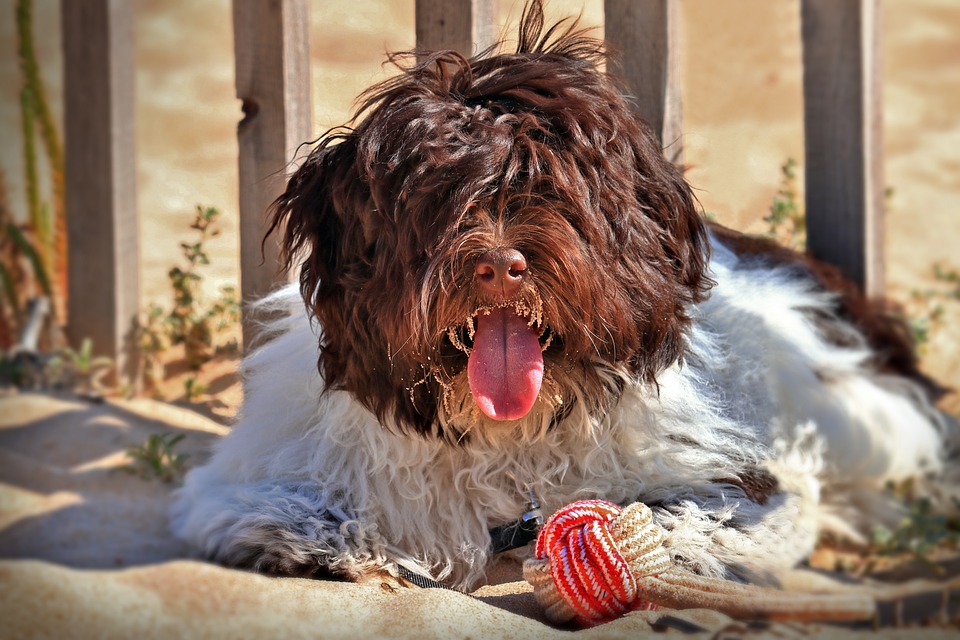
The Havanese is a small, playful and gentle breed of dog. They are great companions and make wonderful family pets. If you are thinking of adding a Havanese to your home, here are some tips on how to care for them.
The most important thing you can do for your Havanese is to provide them with plenty of love and attention. These dogs thrive on human interaction and need to feel like they are part of the family. Spend time each day playing with your Havanese, taking them for walks, and just enjoying their company.
Feeding Havanese breed
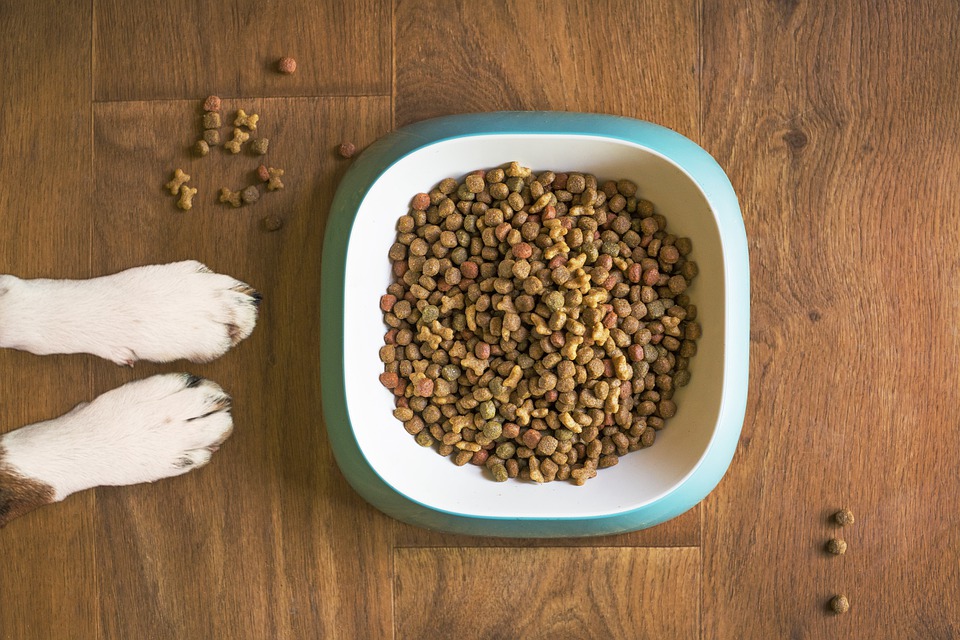
Your Havanese should be fed a high-quality diet that is suitable for small breeds. Look for a food that is rich in protein and low in carbohydrates. Avoid foods that contain fillers or artificial ingredients. You may need to experiment with different brands of food to find one that your Havanese enjoys and does well on.
Havanese are prone to weight gain, so it is important to monitor their food intake and make sure they are getting enough exercise. A good rule of thumb is to feed your Havanese about 1/2 cup of food per day, divided into two meals.
Exercise for a Havanese puppy
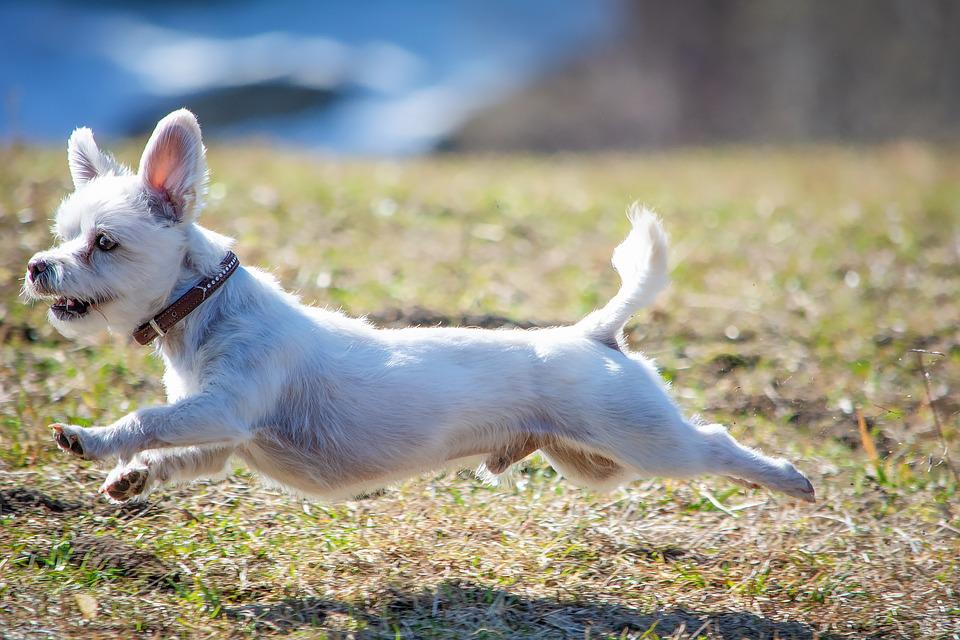
Exercise is very important for the Havanese dog. A daily walk of 20-30 minutes is a must, and should be done in addition to playtime in the yard or other safe area. If you live in an apartment, additional time spent walking or playing at a nearby park is necessary to provide your Havanese with enough exercise.
Training the Havanese breed
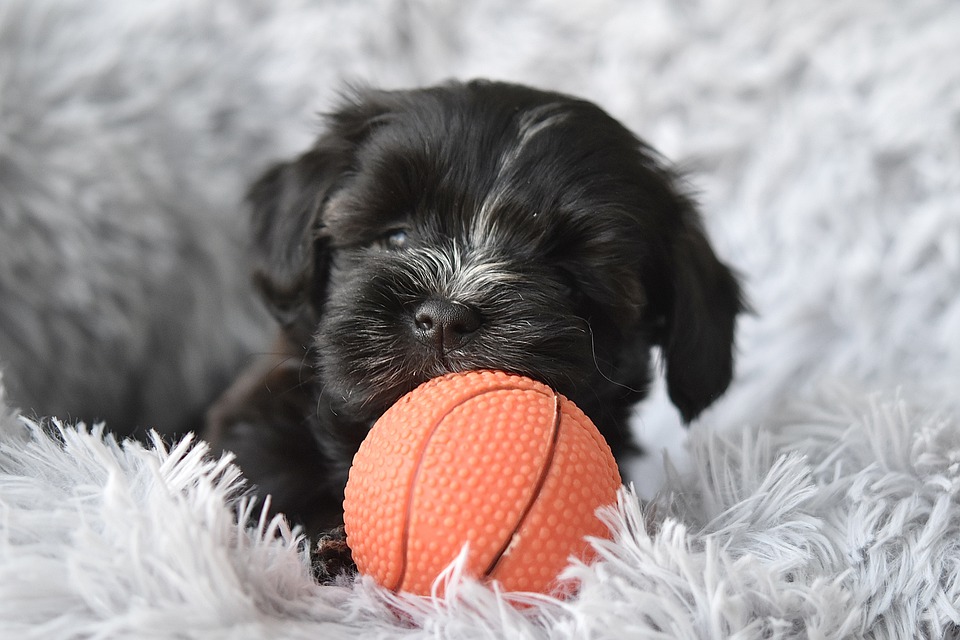
Training an adult dog can be a challenge, but it’s worth it! These dogs are known for their intelligence and their ability to learn new tricks quickly. However, they can also be stubborn and independent, so the dog trainer needs to be patient and consistent with the training. Here are a few tips to help you get started:
1. Start with basic obedience commands such as sit, stay, come, and down. These will help your dog learn to listen to you and follow your commands.
2. Use positive reinforcement techniques such as treats or praise to encourage your dog to behave. Avoid using negative reinforcement, such as scolding or punishment, as this can make your dog fearful or resistant to training.
3. Be consistent with your commands and rewards, and don’t forget to praise your dog when he or she does something right. Dogs respond best to positive reinforcement, so make sure you give plenty of treats and pats!
4. Have patience! Training a dog can be frustrating at times, but it ‘s important to remember that your dog is learning. If you get frustrated, take a break and try again later.
With patience and consistency, you’ll be able to train your Havanese dog easily. Just remember to have fun with it, and your dog will too!
Havanese are intelligent dogs and can be easily trained. Start training your Havanese as soon as you bring them home, using positive reinforcement techniques such as treats and praise. Be patient and consistent with your training, and you will find that your Havanese quickly learns the rules of the household.
Grooming Havanese puppies
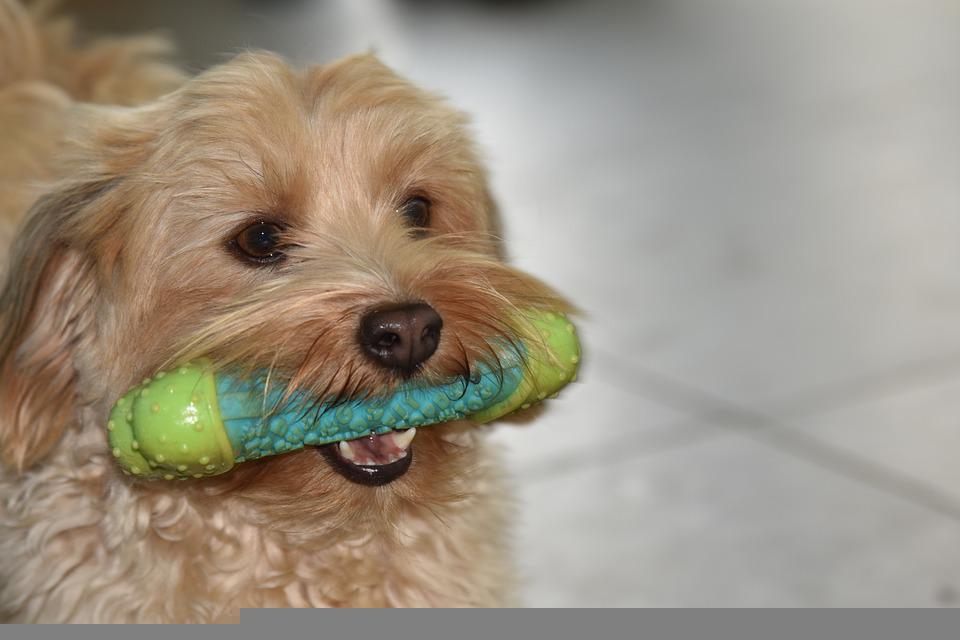
Grooming your Havanese dog is an important part of keeping him healthy and looking his best. The frequency with which you groom your dog will depend on his coat type and whether he is a show dog or a pet. Dogs with longer coats may need to be groomed daily, while those with shorter coats can usually get away with being groomed once or twice a week. Show dogs or the ones participating in dog sports, of course, need to be groomed more frequently than pet dogs since they need to meet the standards set by the American Kennel Club.
When grooming your Havanese, you will need to brush his coat, trim his nails, clean his ears, and brush his teeth. You may also want to give him a bath, although this is not necessary as often as some people think. A good rule of thumb is to bathe your dog every two weeks or so unless he gets particularly dirty or smelly in between baths.
To brush your Havanese’s coat, you will need a soft-bristled brush or comb. Start at the head and work your way down the body , taking care to avoid the delicate areas around the eyes and ears. Brush in the direction of hair growth, using long, smooth strokes. Be sure to brush down to the skin in order to remove any dead hair or dirt that may be trapped in the coat.
Next, you will need to trim your Havanese’s nails. If you can hear his nails clicking on the floor when he walks, they are too long and need to be trimmed. You can do this yourself at home with a pair of dog nail clippers, or you can take him to a groomer or veterinarian to have it done. It is important not to cut too far down into the quick, as this can be painful for your dog and cause bleeding. If you are unsure of how to properly trim your dog’s nails, ask a groomer or vet to show you.
Finally, you will need to brush our Havanese’s teeth at least once a week. You can use a regular toothbrush or a finger brush designed specifically for dogs. Use doggie toothpaste, which is available at most pet stores. Start by brushing the front teeth and then move back to the molars. Be sure to brush under the gumline as well to remove any plaque or tartar that may have built up.
Pros of owning Havanese breed

There are many wonderful things about owning a Havanese dog. They are known to be intelligent, loving, and make great companion animals. Here are just a few of the reasons why you might want to consider owning one of these adorable pups!
Havanese dogs are considered to be hypoallergenic, which means they produce less of the protein that is responsible for triggering allergies in people. If you or someone in your family has allergies, a Havanese may be the perfect breed for you!
2. They’re low-shedding
Another plus for those with allergies or who simply don’t like cleaning up dog hair all the time – Havanese dogs shed very little. In fact, they are often recommended for people with asthma or other respiratory sensitivities.
3. They’re playful but not yappy
Havanese dogs are known for being very playful, but they generally don’t bark excessively. This makes them ideal if you live in an apartment or other close quarters where noise can be an issue.
4. They’re adaptable
Havanese dogs are very adaptable and can easily adjust to changes in their environment or routine. This makes them great pets for families with busy lifestyles or who move around a lot.
5. They’re good with kids
Havanese dogs are patient and gentle, making them excellent companions for children. They are also unlikely to snap or bite, even when provoked.
6. They’re trainable
Havanese dogs are known for being very intelligent, which means they are relatively easy to train. They can learn tricks, obedience commands, and even agility courses with the right training.
7. They make great watchdogs
Despite being small dogs, the Havanese breed can make good watchdogs thanks to their alert and protective nature. They will bark to warn you of strangers or strange noises, but they are not typically aggressive.
8. They’re low-maintenance
Havanese dogs don’t require a lot of grooming or exercise, making them low-maintenance pets. A weekly brush and a daily walk should be enough to keep them happy and healthy.
9. They have a long lifespan
Havanese dogs typically have a long lifespan, living an average of 12-14 years. This means you can enjoy many years with your furry friend by your side.
10. They’re simply adorable!
Last but not least, Havanese dogs are just plain adorable! Their fluffy coats and big eyes make them hard to resist, and they’re sure to bring a smile to your face every day.
Cons of owning a Havanese dog
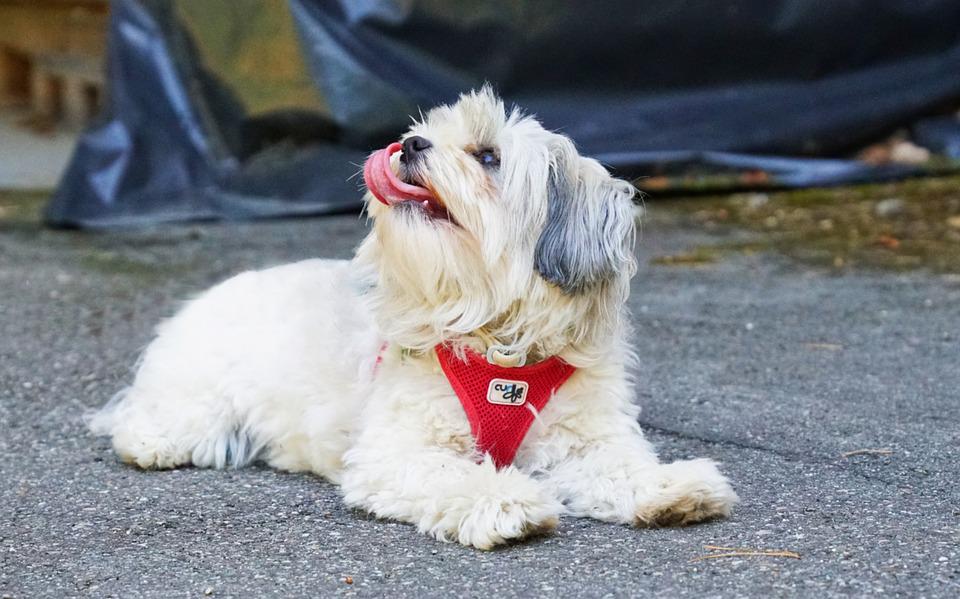
Following are some of the potential cons of owning a Havanese dog:
Havanese dogs can be difficult to potty train. They are often stubborn and may require more patience than other breeds.
Barking:
Havanese dogs are known for their constant barking. This may not be ideal for everyone, especially those who live in apartments or close quarters.
Shedding:
Havanese dogs shed a lot. You will likely find hair everywhere, including on your clothes and furniture.
Separation Anxiety:
Havanese dogs often suffer from separation anxiety. This means they may become destructive or bark excessively when left alone.
Health Issues:
Havanese dogs are prone to certain health problems, such as allergies, eye disorders, and slipped stifles. Be sure to speak with a veterinarian about these potential issues before getting a Havanese dog.
Climate:
Havanese dogs are not well-suited for cold climates. They can develop health problems if they are exposed to the cold for too long.
While there are some potential downsides to owning a Havanese dog, they are also known to be intelligent, affectionate, and playful companions. With proper care and training, they can make wonderful additions to the family.
Health: Havanese Dogs
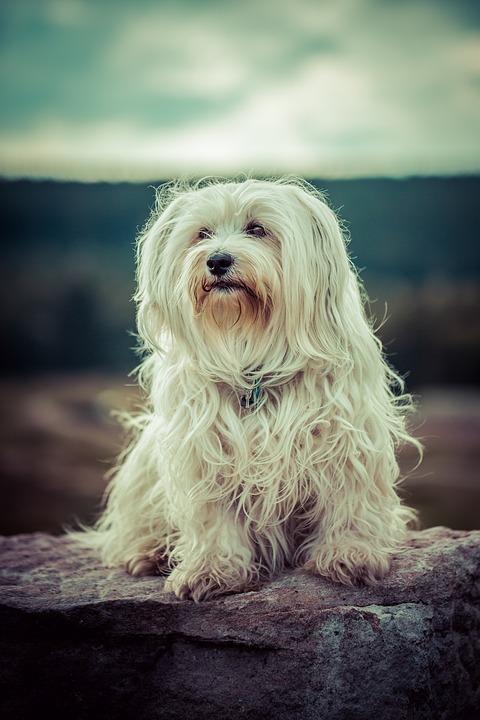
There are a number of health conditions to which Havanese dogs are susceptible. Some of these conditions are more common than others, and some are more serious than others. It is important for potential owners of Havanese dogs to be aware of the health conditions to which these dogs may be prone, so that they can be on the lookout for signs and symptoms and can get their dog to the vet for treatment as soon as possible if necessary.
Allergies:
One of the most common health conditions from which Havanese dogs suffer is allergies. Allergies can manifest in a number of ways, including skin problems, respiratory problems, and gastrointestinal problems. If your Havanese dog is displaying any of these symptoms, it is important to take them to the vet to be checked out, as allergies can be a sign of other underlying health problems.
Cataracts:
Another common health condition from which Havanese dogs may suffer is cataracts. Cataracts are a condition in which the lens of the eye becomes cloudy, leading to decreased vision. If you notice your Havanese dog’s vision seems to be getting worse, be sure to take them to the vet so that they can be checked for cataracts.
Cherry Eye:
“Cherry eye” is a condition in which the gland that produces tears becomes prolapsed and visible in the corner of the eye. While this condition is not painful for dogs, it can cause irritation and inflammation. If you notice that your Havanese dog has a cherry eye, take them to the vet so that they can be treated.
Dislocated Kneecap:
A dislocated kneecap is a condition in which the kneecap becomes displaced from its normal position. This can be a very painful condition for dogs and can make it difficult for them to walk. If you think your Havanese dog may have a dislocated kneecap, take them to the vet right away so that they can be treated.
Ear Infections:
Havanese dogs are prone to ear infections due to their long, floppy ears. If you notice your Havanese dog scratching at their ears or shaking their head excessively, this could be a sign that they have an ear infection. Take them to the vet so that they can be treated.
Patellar Luxation:
Patellar luxation is a condition in which the kneecap becomes dislocated from its normal position. This can be a very painful condition for dogs and can make it difficult for them to walk. If you think your Havanese dog may have patellar luxation, take them to the vet right away so that they can be treated.
Portosystemic Shunt:
A portosystemic shunt is a condition in which the blood vessels that carry blood to the liver are abnormal. This can lead to a number of problems, including gastrointestinal issues, developmental problems, and neurological problems. If you think your Havanese dog may have a portosystemic shunt, take them to the vet right away so that they can be treated.
While the health conditions listed above are some of the most common ones from which Havanese dogs suffer, this is not an exhaustive list. There are other health conditions to which these dogs may be prone. Be sure to talk to your vet about any concerns you have and to get regular check-ups for your Havanese dog to help ensure their continued good health.
How much does a Havanese dog cost?
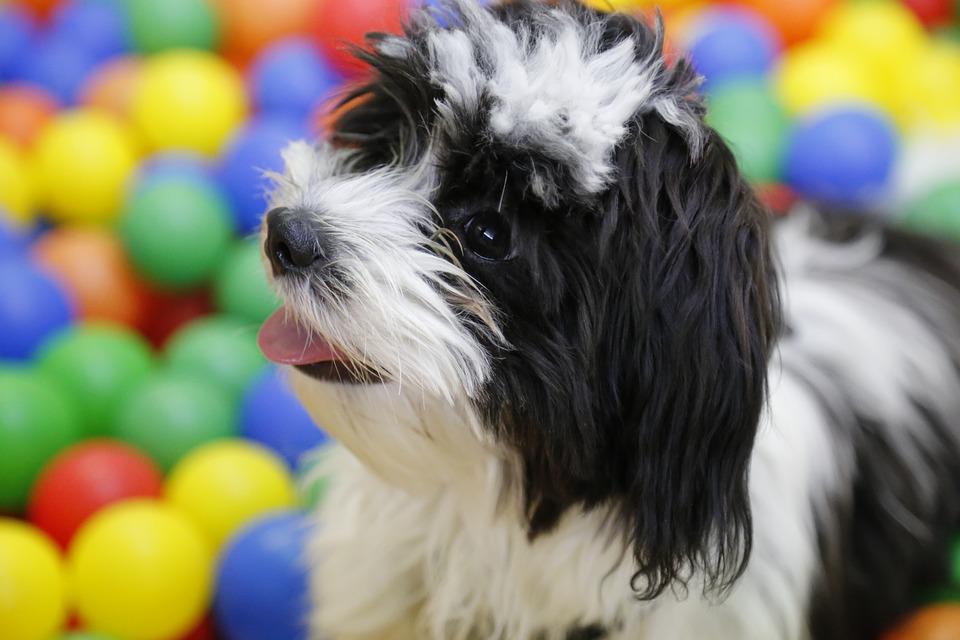
The cost of a Havanese dog will vary depending on several factors such as the breeder’s reputation, the dog’s age and whether it is show quality or pet quality. The average price range for this breed is between $700 and $2000.
When considering purchasing a Havanese dog, be sure to visit several breeders to find the right animal for you and your family. Ask lots of questions and get to know the breeder and their dogs before making a commitment. Ensure that you are comfortable with the living arrangements and that the breeder is reputable.
How to find a reputable breeder of Havanese dogs?
The best way to find a reputable breeder of Havanese dogs is to ask around for recommendations. Talk to friends, family, and other dog owners to see if they know of any good breeders in your area. Once you have a few names, do some research on each one to make sure they are reputable.
Check to see if the breeder is a member of any professional organizations, such as the American Kennel Club or the National Breed Club. A reputable breeder will usually be a member of at least one of these organizations.
Visit the breeder’s facility to see how the dogs are being raised. The dogs should be clean and well-cared for, and the facility should be clean and organized.
Ask the breeder questions about the Havanese puppies, such as health concerns and temperament. A reputable breeder will be able to answer all of your questions in depth about Havanese and more dog breeds.
Get a written contract from the breeder that outlines their guarantees and return policy. A reputable breeder will be happy to provide you with a contract that protects both you and your new puppy.
Take your time when choosing a Havanese breeder. Doing your research now will help you find the perfect puppy that will bring you years of joy.
Bonus Tips for Havanese Dog Owners :
1. Be patient when training your Havanese. These dogs want to please their owners, but they may not always understand what you are asking of them.
2. Take your Havanese to the vet for regular checkups and vaccinations. This will help ensure that your dog stays healthy and happy.
3. Brush your Havanese regularly to prevent tangles and matting in their long coat.
4. Spend time each day playing with and interacting with your Havanese. These dogs thrive on human companionship.
Things to consider before buying a Havanese dog
Havanese dogs are one of the most popular dog breeds, and for good reason! They’re intelligent, loving, and make great companion animals. If you’re thinking about adding a Havanese to your family, here are a few things to keep in mind.
Size
Havanese dogs typically weigh between 8 and 13 pounds and stand at around 11 inches tall. This small size makes them ideal for city living or for families with smaller homes. However, their small size also means they can be easily injured, so it’s important to have supervision around children and other pets.
Coat Care
Havanese have long, silky coats that require regular brushing and grooming. They also tend to shed moderately, so if you’re allergic to dogs, this breed may not be the best choice for you.
Exercise Needs
Despite their small size, Havanese are relatively active dogs who need daily exercise. A short walk or play session will suffice, but they’ll also enjoy interacting with you and other family members throughout the day.
Training Needs
Havanese are intelligent dogs who learn quickly, but they can also be stubborn at times. Patience and positive reinforcement are key when training a Havanese. They typically excel in obedience and agility trials.
Health Concerns
Like all breeds of dogs, Havanese are susceptible to certain health problems. Some of the most common include hip dysplasia, elbow dysplasia, luxating patella, and eye problems. Be sure to ask your veterinarian about these conditions and whether or not your Havanese is at risk.
Overall, Havanese make wonderful companion animals for families of all sizes. They’re loving, intelligent, and relatively easy to care for. If you’re thinking about adding a Havanese dog to your family, be sure to do your research and find a reputable breeder.
Best products you can buy for a Havanese dog
Following are some of the best products that you can buy for your beloved Havanese dog:
1. Dog food diet
Havanese dogs are very active and need a good quality diet to maintain their energy levels. So, some of the best brands of dry dog food that you can buy for your Havanese include Wellness Core, Blue Buffalo, and Taste of the Wild.
2. Dog Crate
A dog crate is a must for any dog owner, and this is especially true for Havanese dogs. They are very active and need a safe place to sleep and rest when they are not playing. Some of the best crates that you can buy for your Havanese include the Midwest Life Stages Dog Crate, the Petmate Sky Kennel, and the AmazonBasics Single-Door Folding Metal Dog Crate.
3. A Dog Bed
A good dog bed is also a must for any Havanese dog owner. They need a comfortable place to sleep and rest, and a good dog bed will provide them with the support and comfort that they need. Some of the best beds that you can buy for your Havanese include:
- Best Friends by Sheri The Original Calming Donut Cat and Dog Bed
- JOYELF Orthopedic Dog Bed
- MIXJOY Orthopedic Dog Bed
- Long Rich Rectangle Bolster Pet Bed
4. A Set of Dog Toys
These dogs are very active and love to play, so a good set of dog toys is a must. Some of the best toys that you can buy for your Havanese include:
5. A Dog Collar
A good dog collar is a must for any Havanese dog owner. They need a collar that is comfortable and stylish, and that will also hold up to their active lifestyle. Here are some of the best collars that you can buy for your Havanese dog.
6. A Dog Leash
A Havanese dog’s leash is also necessary. They need a leash that is strong and durable, and that will also be comfortable for them to use. Here are some of the best leashes that you can buy for your Havanese dog.
7. Brush
Any Havanese dog owner should have a dog brush in their arsenal. They need a brush that will help to keep their coat healthy and looking its best. Some of the best brushes that you can buy for your Havanese include the FURminator Undercoat Rake, the comb, and the Oster shedding blade.
8. Dog shampoo
Any Havanese dog owner should have a bottle of decent dog shampoo on hand. They need a shampoo that will help to keep their havanese coat clean and smelling fresh. Some of the best shampoos that you can buy for your Havanese include the TropiClean Luxury 2-in-1 Pet Shampoo and Conditioner, the Earthbath All Natural Pet Shampoo, and the 4-Legger Certified Organic Dog Shampoo.
9. A Dog Treat
Any Havanese dog owner needs a must-have treat in their arsenal. They need a treat that is healthy and nutritious, and that will also be tasty and enjoyable for them to eat. Some of the best treats that you can buy for your Havanese include the Blue Buffalo Wilderness Trail Treats, the Merrick Classic Grain-Free Dog Treats, and the Wellness Natural Dog Treats.
10. A Dog Bowl
A Havanese dog’s bowl is also essential. They need a bowl that is durable and easy to clean, and that will also be comfortable for them to use. Here are some of the best bowls that you can buy for your Havanese dog.
The Bottom Line
The Havanese dog breed is a popular choice for families and individuals alike. They are known for their adorable appearance, loving personality, and easy-to-care-for coat. However, before you decide to add one of these furry friends to your home, it’s important that you understand what goes into owning a Havanese dog. This article has outlined the basics of caring for a Havanese Dog, from feeding them the right food to training them properly. We hope that after reading this post, you feel confident in your ability to provide a happy and healthy home for your new pet. If you have any other questions about Havanese Dogs or want help finding resources for training or caring for yours, please don’t hesitate to reach out to us. Happy tails!
Frequently Asked Questions about Havanese breed

Is a Havanese a good family dog?
Yes, a Havanese dog is a great family pet! They are known for being intelligent, affectionate, and gentle. They are also hypoallergenic, which makes them a good choice for families with allergies. Havanese dogs are typically easy to train and are good with children.
Do Havanese dogs bark a lot?
No, Havanese dogs don’t bark a lot. They are actually one of the quietest dog breeds. However, they may yap or whine when they are excited or want attention.
Is Havanese a smart breed?
Yes, Havanese are considered to be a very intelligent breed of dog. They are known for their quick learners and ability to remember things. Like the entire Bichon family, Havanese are also known for being very obedient and easy to train. So, this makes them a great choice for families with children or first-time dog owners.
Is Havanese a rare breed?
Yes, Havanese are a rare breed of dogs. They are not as popular as other breeds, such as Labrador Retrievers or German Shepherds. However, they are still fairly well-known and have a devoted following among dog lovers. According to the American Kennel Club, Havanese rank 89th out of 193 breeds in terms of popularity.
What are some common names for the Havanese breed?
The Havanese breed is also known as the Havana Silk Dog, the Cuban Bichon, and the Bichon Havanais.
What are the AKC breed standards for the Havanese breed?
The American Kennel Club (AKC) recognizes the Havanese breed in the Toy Group. The breed standard describes the ideal Havanese as a small, sturdy dog with a short, dense coat. The coat should be available in a wide variety of colors, including black, white, cream, silver, blue, gold, and brown. The head should be long with floppy ears and dark, expressive eyes. The Havanese should have a natural “topknot” of hair on the top of its head that can be decorated with bows or ribbons. So, the ideal Havanese temperament is friendly, playful, and intelligent.
What activities are the Havanese breed good for?
The Havanese breed is good for a variety of activities, including agility, obedience, and tracking. They are also a popular choice for Therapy Dogs due to their gentle and loving nature.
How do I care for my Havanese dog?
The Havanese breed is a low-maintenance breed. So, the coat does not require a lot of grooming, but does need to be brushed regularly to prevent matting. The Havanese is an average shedder and is considered to be a hypoallergenic breed.
What is the temperament of the Havanese breed?
The Havanese is a friendly, playful breed that is good with children and other pets. So, they are intelligent dogs that are easy to train. The Havanese is an active breed that needs daily exercise.
What is the average life expectancy of the Havanese breed?
The average life expectancy of the Havanese breed is 12-15 years.
